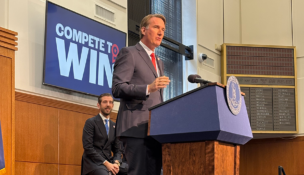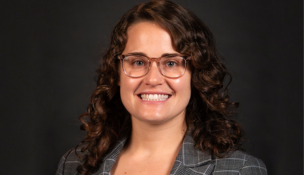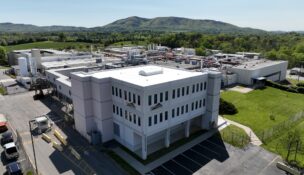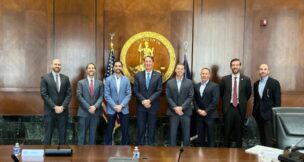Pittsylvania site is top contender for $100M battery project
Microporous investment could top $1B, 1,500 workers

Southern Virginia Megasite at Berry Hill

Southern Virginia Megasite at Berry Hill
Pittsylvania site is top contender for $100M battery project
Microporous investment could top $1B, 1,500 workers
Updated 4:15 p.m. Nov. 28
The Southern Virginia Megasite at Berry Hill in Pittsylvania County is the top contender for a lithium-ion battery manufacturing project that could top $1 billion in investments and about 1,500 jobs, according to its CEO.
Tennessee-based Microporous, whose legal entity is MP Assets, confirmed early Tuesday that it has been working on a deal with Virginia to bring in the operation after the grant was announced Monday by the U.S. Department of Energy. The project would involve at least a $100 million investment and 282 jobs, the Energy Department said in its announcement.
“I think it’s a win for my company. I think it’s a win for Virginia and the potential employees there,” Microporous CEO John Reeves told Virginia Business in an interview Tuesday, adding that the project is also a “huge winner for the United States as well.”
For eight decades, Microporous has produced separators for lead-acid batteries, the oldest rechargeable battery technology used for power grid systems and ignition power for automobiles, and also has a facility in Austria. Its headquarters are in Sullivan County, Tennessee, near Bristol, Virginia.
The company’s newest venture involves manufacturing separators for lithium-ion batteries, which are used to power electric vehicles, among other devices. China is the leading manufacturer of the lithium-ion batteries, demand for which is only expected to continue to grow in coming decades. While the Biden administration has focused on rebuilding supply chains to bring manufacturing, jobs and a focus on emerging technologies back to the U.S., protecting national security has also been a critical component of those efforts.
Microporous was among recipients of seven Energy Department awards, totaling $275 million, for disadvantaged communities, including those that once had booming coal industries. The projects are intended to address critical energy needs while rebuilding a domestic supply chain for existing and emerging technologies. Microporous is to receive the largest chunk of that funding at $100 million.
While North Carolina and Tennessee have also been contenders for the deal, Reeves said his company is “leaning towards Virginia.” The 3,500-acre Southern Virginia Megasite at Berry Hill earlier this year lost a $3.5 billion Ford Motor Co. electric vehicle battery factory when Gov. Glenn Youngkin pulled the state out of the running for the deal over concerns that a Chinese company would be involved in its operation.
Reeves said Microporous’ long-term plans for Berry Hill, which it has been eyeing for about a year, include two facilities comprising about 120 acres near a solar farm, which could help power its operations. He also cited the site’s “world-class” rail service, as well as workforce training efforts available in the region.
“It’s just a great fit all the way around,” Reeves said.
A spokesperson for Youngkin did not immediately respond to an email seeking comment. Jason El Koubi, president and CEO of the Virginia Economic Development Partnership, declined to comment.
“For competitive reasons and to protect confidential company information, we cannot comment on current or potential economic development prospects,” El Koubi said in an email to Virginia Business.
While Reeves did not offer specifics about the deals that North Carolina and Virginia have put forth, North Carolina has been a “bit more” generous in its financial offer, while Virginia has offered resources like training and recruitment, tools he called equally important. Virginia has also moved faster and “continued to impress us in all the right things.”
“Virginia has been super helpful. … The people in the Virginia economic development group are second to none,” he said, referring to the Virginia Economic Development Partnership, the state’s lead economic development group led by El Koubi. “Not only are they thorough, they’re broad and they’re very deep. I can’t think of something that they didn’t really rally around to get done, and the resources in the Danville area are amazing.”
The separators Microporous produces are made of polyethylene film, the same material many plastic trash bags are made from. The film is then coated, slit and then wound to form a battery cell. Today, the U.S. has the capacity to produce about 100 million square meters of the separators for lithium-ion batteries annually, which are larger than their lead-acid counterparts. By 2035, the U.S. will need up to 25 billion square meters annually, Reeves said, adding there is room in the U.S. for 15 factories.
Reeves said the long-term vision for the Danville site includes two buildings, each with two film lines, 20 coating lines and 40 slitting lines. The eventual output for a potential Microporous site factory in Danville, which would require about 1,500 workers, would be about 1.2 billion square meters of film. Depending on funding — Microporous is applying for additional grants — build out could take up to eight years if the company has to fund the project. With government grants, Reeves anticipates four to five years.
It would also be a strategic location for the company. Two lithium-ion battery plants are under construction within about 80 miles of Danville in North Carolina, including a Toyota plant in Liberty and a VinES plant in Chatham County. In Western Tennessee, Ford’s BlueOval City will produce the company’s next generation all electric truck and advanced batteries; a second Ford plant in central Kentucky will consist of two battery plants.
Toyota’s and VinES could consume all of the separators Microporous plans to produce out of a new factory; Ford could consume twice that capacity, Reeves said.
Reeves said he could envision a scenario with one of the two buildings landing in North Carolina with another in Danville; he also said he could see a second plant winding up in North Carolina later in the future because doubling the workforce to 3,000 people would be too much for the region to produce.
Berry Hill, which is a joint venture between Danville and Pittsylvania County, has boosted the visibility of the region, alongside a new $650 million permanent Caesars Virginia casino, which is expected to open in 2024, and the two-decade old Institute for Advanced Learning and Research, where the Navy is building a $56 million regional training center to help grow its submarine workforce supplier base. The Navy has also opened an Additive Manufacturing Center of Excellence within IALR’s Center for Manufacturing Advancement.
Advanced manufacturing has helped propel rapid growth in the region, Matthew Rowe, Pittsylvania County’s economic development director, said. While he declined to directly comment on Microporous’ plans, he said the region is looking to attract clients that can “move the needle.”
Corrie Bobe, Danville’s economic development and tourism director, did not respond to queries from Virginia Business.
Reeves said he was unsure of a timeline for any official announcement about the project. The company will spend the next 45 days finalizing paperwork and negotiating its contract for the grant, a process for which Virginia is providing data.
t

















